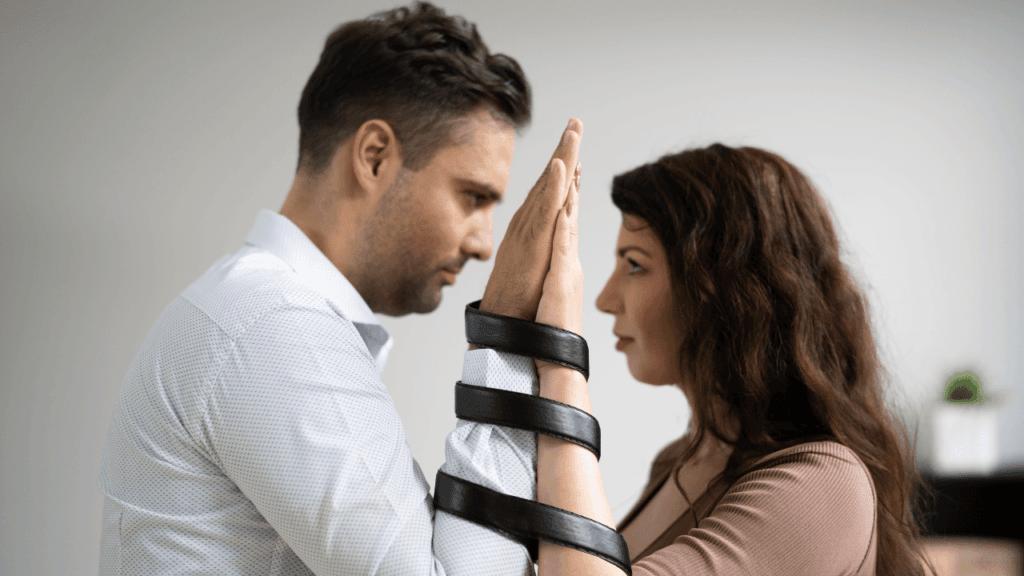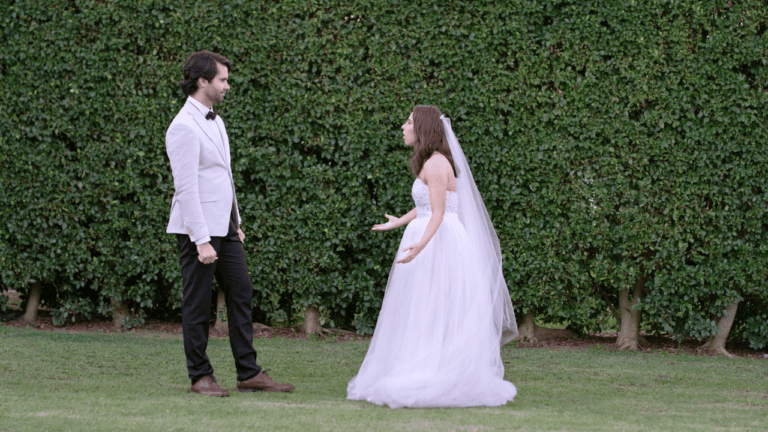How to Fix a Relationship You Ruined, At the heart of any meaningful connection lies the capacity for healing a damaged relationship. Recognizing the gravity of one’s missteps is crucial in the journey of fixing a relationship. Whether it’s dealing with the aftermath of a betrayal or fixing the damage caused by neglect, the first step is to admit fault and commit to making things right.
An apology is important, but it’s not enough if you don’t truly understand the hurt you’ve caused. It’s essential to show empathy and understand the depth of your partner’s pain. This is a key part of how to fix a relationship you’ve damaged.
This process of facing the pain and showing empathy is vital in couples counseling. It’s about building trust and affection again. It’s about moving past just saying sorry and finding a way to heal together. Even with feelings of guilt and fear, a relationship can heal. It starts with truly understanding and accepting each other’s feelings.
Key Takeaways
- How to Fix a Relationship You Ruined, Admitting responsibility and empathizing with your partner is crucial to repair efforts.
- Understanding the concept of attachment injuries can help navigate emotional healing.
- Behavioral changes and consistent actions are more impactful than gestures alone.
- Dedicated communication is key to transforming negative patterns within relationships.
- Accepting mistakes and fostering curiosity about each other promotes relationship growth.
- Empathetic experiences can facilitate a perspective shift necessary for mending bonds.
Recognizing Your Impact and Initiating Healing
Healing a damaged relationship starts with admitting how your actions hurt it. This first step is key in fixing the relationship. It helps you understand the hurt and start rebuilding trust.
Feeling the pain you caused, like neglect or betrayal, is hard. It’s more than just saying sorry. It’s about truly wanting to change and grow. Understanding what love means in your relationship is also important.
Fixing the relationship is not just about quick fixes. It’s about changing how you think and act. This might mean learning from your family’s past or following spiritual teachings like Isaiah 61:4. Books like “Mended: Restoring the Hearts of Mothers by Blythe Daniel and Dr. Helen McIntosh offer a detailed plan for healing.
- “Acknowledgment is the foundation of healing—own your actions to mend a broken bond.”
- “Healing starts with the courage to say, ‘I was wrong.'”
- “The first step to repair is recognizing the pain you’ve caused.”
- “It takes strength to admit your role in the fracture of trust.”
- “Healing begins where accountability meets sincerity.”
- “An apology isn’t weakness; it’s the bridge to understanding.”
- “Acknowledging hurt is an act of love, not guilt.”
- “True regret comes from feeling the pain you caused, not just the consequences you face.”
- “Saying ‘I hurt you’ is not enough—commit to change and follow through.”
- “Admitting fault transforms blame into a chance for growth.”
- “Change requires more than words—it demands consistent action.”
- “Healing relationships is about rewriting patterns, not offering temporary solutions.”
- “Growth begins where old habits end.”
- “Love strengthens when effort replaces excuses.”
- “The choice to heal starts with choosing humility over pride.”
- “Healing isn’t about being perfect; it’s about being present.”
- “Transformation takes time, but commitment is the constant.”
- “Choosing to repair relationships is choosing to honor love over ego.”
- “Change is a daily decision, not a one-time promise.”
- “True repair begins when you shift from defense to understanding.”
- “Understanding someone’s pain is the first step toward their forgiveness.”
- “Emotional scars are invisible but carry weight—acknowledge them to heal together.”
- “Your partner’s silence often speaks the loudest about their pain.”
- “Healing involves walking in their shoes, not just explaining your own.”
- “Scars show where love struggled but can still thrive.”
- “Emotional wounds don’t heal with time alone—they require attention and care.”
- “True love doesn’t erase pain but works tirelessly to ease it.”
- “Healing broken trust is slow, but patience is part of the process.”
- “To heal, you must see their pain as deeply as your own.”
- “No one heals in isolation—empathy is the salve that soothes emotional wounds.”
- “Trust isn’t rebuilt in a day; it’s sewn stitch by stitch.”
- “Honesty is the thread that strengthens the fabric of trust.”
- “Healing trust requires consistency in words and actions.”
- “The effort to rebuild shows your commitment to the relationship’s future.”
- “Rebuilding trust is less about grand gestures and more about small, daily acts of love.”
- “Every honest conversation lays another brick in the wall of trust.”
- “Apologies plant the seeds; follow-through is what makes them bloom.”
- “Broken trust can heal when truth becomes the foundation of every interaction.”
- “Trust regrows when you nurture it with patience and transparency.”
- “Healing trust means letting actions speak louder than promises.”
- “God’s grace is a reminder that we are never beyond redemption—relationships included.”
- “Healing mirrors Isaiah 61:4—rebuilding what was once ruined requires faith and effort.”
- “Forgiveness is as much a gift to yourself as it is to the other person.”
- “Galatians 6:5 reminds us of our personal responsibility to heal and grow.”
- “Love inspired by faith turns brokenness into beauty.”
- “Repairing relationships is a sacred act of grace and growth.”
- “The journey of reconciliation brings us closer to divine love.”
- “Compassion and humility are the cornerstones of restoration.”
- “Spiritual healing often begins with the humility to listen and learn.”
- “True reconciliation is guided by both love and light, within and beyond us.”
Building trust back is like weaving a tapestry with honesty and openness. Celebrating efforts, like Harvest House giving away “Mended” books, shows the importance of fixing relationships.
Talking openly about mistakes and learning from them is crucial. Spending quality time together and creating new, positive memories helps too. Getting advice from experts, like My Life Psychologists, can also help.
Fixing a relationship takes effort from both sides. It’s about understanding the emotional scars and working together to heal. This approach not only fixes immediate problems but also creates a supportive environment for long-term happiness.
Empathy and Kindness Essentials for Mending a Relationship
In the journey of rebuilding a broken relationship, empathy and kindness are key. It’s not always the big gestures that matter, but the small, consistent acts of kindness. These show you’re truly trying to fix things.
Relationships can change a lot and still come out stronger. This shows how deep emotional bonds can be resilient.
To start fixing a damaged relationship, you need to understand what went wrong. Sometimes, a lack of stability can cause problems. Regular activities that strengthen your bond can help.
Understanding Attachment Injuries
Attachment injuries happen when trust is broken, causing deep emotional pain. Recognizing these injuries is a crucial first step in repairing a broken relationship. Moments like forgotten anniversaries or broken trust are deeply hurtful.
Prioritizing Emotional Presence Over Apologies
Apologies are important, but they need to be real and heartfelt. Emotional presence goes beyond just saying sorry. It validates the other person’s feelings and experiences.
In work relationships, noticing and appreciating positive contributions can change things. This shows the power of genuine recognition and engagement.
Doing activities together that bring you closer can also help. Sharing interests or just taking a ‘coffee break’ can ease tension and strengthen your bond.
- “Empathy is the bridge that closes the gap between hurt and healing.”
- “When you listen with your heart, you hear what words can’t express.”
- “Empathy means seeing their pain through their eyes, not your own.”
- “Understanding their feelings is the first step toward rebuilding trust.”
- “True connection begins when you acknowledge their experience without judgment.”
- “Empathy doesn’t fix the past; it paves the way for a better future.”
- “Sometimes, all someone needs is to feel heard and understood.”
- “Walk in their shoes, not to explain, but to understand.”
- “Healing starts when you replace defensiveness with genuine understanding.”
- “Empathy is the foundation of every repaired bond.”
- “Kindness speaks the loudest when words fall short.”
- “A small act of kindness can heal a wound no apology ever could.”
- “Consistency in kindness rebuilds what anger and neglect have broken.”
- “Kindness isn’t just a gesture—it’s a commitment to care.”
- “In relationships, small daily acts of love make the biggest difference.”
- “Kindness is the language that mends even the deepest scars.”
- “Healing happens in the quiet moments of selfless care.”
- “A gentle touch can soothe where words cannot.”
- “Sometimes, kindness means simply being present.”
- “Kindness turns intentions into actions and apologies into meaning.”
- “Resilience grows when love chooses to stay through the hardest times.”
- “Even broken relationships can bloom again with patience and care.”
- “The strongest relationships are those that choose to grow from their challenges.”
- “It’s not about never falling—it’s about rising together every time.”
- “Love doesn’t erase mistakes; it learns from them.”
- “Resilience is the proof that love is greater than pain.”
- “Even in hurt, the roots of love can regrow stronger.”
- “A healed bond often becomes the strongest one.”
- “In every broken piece, there’s a chance for something more beautiful to emerge.”
- “A resilient relationship is one that chooses love over fear.”
- “Broken trust leaves scars, but recognizing the pain begins the healing.”
- “Attachment injuries run deep; healing them requires time and tenderness.”
- “Hurtful moments don’t define a relationship, but how you address them does.”
- “Understanding the pain of betrayal is the first step to rebuilding trust.”
- “Emotional wounds are invisible, but their impact is real.”
- “Repairing attachment injuries requires acknowledging their depth.”
- “The sting of broken trust fades with the salve of genuine effort.”
- “An unspoken hurt needs acknowledgment to be healed.”
- “Rebuilding trust is not about forgetting; it’s about creating new memories.”
- “Healing attachment injuries is about rewriting your relationship’s story.”
- “An apology without emotional presence is an empty gesture.”
- “Being there emotionally means more than saying ‘I’m sorry.’”
- “Presence is felt, not spoken—it’s about being truly there for someone.”
- “Emotional presence validates their pain in ways words cannot.”
- “To heal, you must be present not just physically, but emotionally.”
- “Saying sorry is the start; showing you care is the journey.”
- “Emotional presence turns apologies into reconciliation.”
- “When you show up emotionally, you show that they matter.”
- “Apologies fade, but emotional connection lingers.”
- “Healing requires more than words—it needs a heartfelt presence.”
Getting help from a counselor or trusted friends is also key for relationship repair.
Fixing a relationship is more than just fixing the surface issues. It’s about rebuilding trust, offering emotional support, and understanding each other’s needs. Therapy or special activities can help fix the damage and bring your relationship back to a place of respect and care.
In the end, a relationship’s strength isn’t about avoiding problems. It’s about facing them together and growing stronger. Empathy and ongoing effort are essential for healing and making your relationship better.
How to Fix a Relationship You Ruined
When emotions are high, finding the right steps to fix a damaged relationship is crucial. It’s about facing challenges and coming out stronger together. The first step is to admit your mistakes openly.
Healing a relationship means rebuilding trust. This takes time, understanding, and effort from both sides.
Fixing a relationship isn’t about big gestures. It’s about many small steps that help heal. Listening, showing empathy, and taking responsibility are key. Inspiring messages and thoughtful words can also help mend broken connections.
- “Healing begins the moment you take responsibility for the pain you’ve caused.”
- “Admitting your mistakes is not a weakness; it’s the first step toward redemption.”
- “True love is owning up to the harm you’ve done and working to make it right.”
- “Acknowledging your role in the conflict shows strength and maturity.”
- “Fixing a relationship starts with looking inward and facing your flaws.”
- “Sincere accountability is more powerful than any excuse or justification.”
- “Owning your mistakes lays the foundation for forgiveness and trust.”
- “The hardest step is admitting you were wrong, but it’s also the most healing one.”
- “Apologies mean little without the actions to back them up.”
- “Take responsibility, not to undo the past, but to shape a better future.”
- “Trust is fragile; once broken, it takes time, effort, and consistency to restore.”
- “Rebuilding trust isn’t about perfection; it’s about persistence.”
- “Trust is repaired through a thousand small acts of reliability.”
- “Consistency in your actions rebuilds trust faster than words ever could.”
- “Broken trust can heal if both sides are willing to work together.”
- “Be transparent, even when it’s uncomfortable—that’s how trust grows.”
- “Rebuilding trust is less about erasing the past and more about creating a better present.”
- “Prove through your actions that your words can be believed.”
- “Trust grows when you prioritize their peace over your pride.”
- “Every honest effort you make is a stitch in the fabric of trust.”
- “Listen not to reply but to understand—that’s where true connection begins.”
- “Open, calm communication can untangle even the messiest misunderstandings.”
- “Speak from the heart, and you’ll touch theirs.”
- “Effective communication starts with listening more than you talk.”
- “The right words, spoken at the right time, can change everything.”
- “Create a safe space for honesty, free from judgment or blame.”
- “Healing comes from conversations rooted in love and respect.”
- “Listening to their pain without defensiveness is a gift of love.”
- “Clear communication can illuminate a path through even the darkest conflict.”
- “Understanding their perspective is as vital as sharing your own.”
- “A single act of kindness can be the first step toward reconciliation.”
- “Small, thoughtful actions show your commitment to repairing the damage.”
- “Healing isn’t a sprint; it’s a journey of daily efforts and small victories.”
- “Apologies are words, but changed behavior is the real apology.”
- “Every small step forward counts, even if it feels slow.”
- “Start with little gestures that show you care—they go a long way.”
- “Fixing a relationship is less about grand gestures and more about steady effort.”
- “A heartfelt note, a kind word, or a thoughtful deed can reignite the bond.”
- “Consistency in small acts of love builds bridges where walls once stood.”
- “In mending a relationship, it’s the little things that make the biggest difference.”
- “Healing is a mutual journey—it requires effort from both sides.”
- “Give each other the grace to grow while working through the hurt.”
- “A healthy relationship is built when both partners commit to healing together.”
- “Collaborate, don’t compete—focus on what’s best for the relationship.”
- “True healing comes from understanding and meeting each other’s needs.”
- “Be patient with their healing process; they’re learning to trust you again.”
- “Work together to create new memories that outshine the painful ones.”
- “Reconciliation requires empathy, effort, and a shared vision for the future.”
- “Healing together means forgiving, growing, and rediscovering joy as a team.”
- “Every step you take toward each other strengthens the foundation of love.”
To rebuild trust, be open and willing to make sacrifices for your partner’s comfort. Sharing personal things or changing your behavior shows you’re committed. It’s about showing through actions that you’re in it for the long term.
Remember, fixing a relationship takes time and effort. Experts say there’s no one-size-fits-all solution. But working on yourself and the relationship can make a big difference. Fixing a relationship is a journey of growth and understanding each other’s needs.
Behavioral Changes and Gestures of Commitment
means making real changes and showing commitment. These changes are not just for show. They come from truly understanding and caring for your partner. Using relationship repair tips like keeping promises is key to rebuilding trust in a relationship.
Recognizing the Power of Empathetic Experience
Moving from just saying sorry to truly feeling and showing empathy is crucial. Research shows that many successful repairs come from partners owning up to their mistakes and feeling each other’s pain. A real apology can start a conversation, letting empathy grow. It’s not just about feeling but also about doing things that meet your partner’s emotional needs.
The Importance of Consistent Actions
A big part of relationship repair tips is doing positive things regularly to keep the relationship alive. Studies say 62% of relationships that got better after a problem needed consistent actions to rebuild trust. This includes checking in often and keeping communication open, backed by research showing these steps work.
- “Real change happens when actions align with words.”
- “Behavioral changes prove that your love isn’t just a feeling—it’s a choice.”
- “Promises mean nothing without the follow-through.”
- “Fixing a relationship requires visible, consistent growth.”
- “Love is in the details of daily actions, not just grand gestures.”
- “The way you show up every day defines the strength of your commitment.”
- “Change doesn’t happen overnight, but persistence shows you’re serious.”
- “Consistency in your actions rebuilds what words alone cannot.”
- “It’s not just about fixing what’s broken but becoming better for each other.”
- “Your actions should say, ‘I’m here, and I’m all in.’”
- “Small gestures of love create lasting ripples of trust.”
- “Commitment shines brightest in the little moments of effort.”
- “Every thoughtful act shows your partner that they matter deeply.”
- “Love is proven through the everyday gestures that build a strong foundation.”
- “Consistency in your small acts of care cements the bond between you.”
- “Gestures don’t need to be grand; they just need to be genuine.”
- “Every small act of kindness says, ‘I choose us.’”
- “Making time for them every day shows they’re your priority.”
- “Your daily choices are the building blocks of lasting love.”
- “Loving gestures turn promises into proof.”
- “Small gestures of love create lasting ripples of trust.”
- “Commitment shines brightest in the little moments of effort.”
- “Every thoughtful act shows your partner that they matter deeply.”
- “Love is proven through the everyday gestures that build a strong foundation.”
- “Consistency in your small acts of care cements the bond between you.”
- “Gestures don’t need to be grand; they just need to be genuine.”
- “Every small act of kindness says, ‘I choose us.’”
- “Making time for them every day shows they’re your priority.”
- “Your daily choices are the building blocks of lasting love.”
- “Loving gestures turn promises into proof.”
- “Consistency builds the trust that time alone cannot heal.”
- “Being reliable is the foundation for rebuilding trust.”
- “Trust is rebuilt one consistent action at a time.”
- “Repeated effort shows you’re here to stay.”
- “Fixing a relationship is a marathon, not a sprint.”
- “Consistency is love made visible.”
- “Your partner needs to see that your commitment isn’t fleeting.”
- “Healing comes from showing up, again and again.”
- “Every time you follow through, you strengthen your bond.”
- “Consistent actions tell your partner, ‘You can count on me.’”
- “Quality time is the currency of connection.”
- “Rebuilding a relationship requires showing up and being present.”
- “Sharing meaningful moments creates a foundation for healing.”
- “Your presence matters more than your perfection.”
- “Communicate not to win, but to understand and grow together.”
- “Open conversations build trust and clarity.”
- “A calm, honest talk can heal what silence cannot.”
- “The effort you put into time spent together shows your true priorities.”
- “Connection grows in the spaces where love and listening meet.”
- “Positive communication sets the tone for rebuilding trust and intimacy.”
Staying consistent in your actions shows you’re serious about fixing the relationship for good. The data shows that 94% of repaired relationships got better with small, thoughtful gestures. This highlights the value of regular, loving actions that show you care in your shared life.
Spending quality time together, setting clear expectations, and using positive body language and tone are all important. Studies, including those by Edward G. Wertheim, Ph.D., support these strategies for rebuilding trust in a relationship. They help keep interactions clear and consistent.
Communication Strategies for Relationship Restoration
Effective communication is key to healing a damaged relationship. It uses methods like behavior therapy and empathy to help couples understand each other again. By using communication strategies for repairing relationships, couples can rebuild and keep their emotional bond strong.
At the heart of relationship restoration advice is talking openly and honestly. This creates a space where rebuilding a broken relationship is easier. Being clear about feelings and needs helps avoid misunderstandings and resentments.
Facilitating Perspective Shifts
Changing how we see things can really help in healing a damaged relationship. It’s about having talks that help each person understand the other’s view. This can lead to more empathy and less conflict.
- “Quality time is the currency of connection.”
- “Rebuilding a relationship requires showing up and being present.”
- “Sharing meaningful moments creates a foundation for healing.”
- “Your presence matters more than your perfection.”
- “Communicate not to win, but to understand and grow together.”
- “Open conversations build trust and clarity.”
- “A calm, honest talk can heal what silence cannot.”
- “The effort you put into time spent together shows your true priorities.”
- “Connection grows in the spaces where love and listening meet.”
- “Positive communication sets the tone for rebuilding trust and intimacy.”
- “Consistency builds the trust that time alone cannot heal.”
- “Being reliable is the foundation for rebuilding trust.”
- “Trust is rebuilt one consistent action at a time.”
- “Repeated effort shows you’re here to stay.”
- “Fixing a relationship is a marathon, not a sprint.”
- “Consistency is love made visible.”
- “Your partner needs to see that your commitment isn’t fleeting.”
- “Healing comes from showing up, again and again.”
- “Every time you follow through, you strengthen your bond.”
- “Consistent actions tell your partner, ‘You can count on me.’”
- “Small gestures of love create lasting ripples of trust.”
- “Commitment shines brightest in the little moments of effort.”
- “Every thoughtful act shows your partner that they matter deeply.”
- “Love is proven through the everyday gestures that build a strong foundation.”
- “Consistency in your small acts of care cements the bond between you.”
- “Gestures don’t need to be grand; they just need to be genuine.”
- “Every small act of kindness says, ‘I choose us.’”
- “Making time for them every day shows they’re your priority.”
- “Your daily choices are the building blocks of lasting love.”
- “Loving gestures turn promises into proof.”
- “Empathy turns a simple apology into a bridge toward healing.”
- “To repair a relationship, you must first step into their shoes.”
- “Empathy is love in its purest, most healing form.”
- “Hearing their pain is important; truly feeling it changes everything.”
- “A relationship grows when both partners honor each other’s emotions.”
- “Understanding their hurt is the first step in undoing the damage.”
- “Apologies mean nothing without empathy to fuel them.”
- “Empathy isn’t just a feeling; it’s an action that heals wounds.”
- “The power of repair lies in your ability to feel their hurt as your own.”
- “True connection grows from the courage to feel and validate their pain.”
- “Real change happens when actions align with words.”
- “Behavioral changes prove that your love isn’t just a feeling—it’s a choice.”
- “Promises mean nothing without the follow-through.”
- “Fixing a relationship requires visible, consistent growth.”
- “Love is in the details of daily actions, not just grand gestures.”
- “The way you show up every day defines the strength of your commitment.”
- “Change doesn’t happen overnight, but persistence shows you’re serious.”
- “Consistency in your actions rebuilds what words alone cannot.”
- “It’s not just about fixing what’s broken but becoming better for each other.”
- “Your actions should say, ‘I’m here, and I’m all in.’”
- “Empathy turns a simple apology into a bridge toward healing.”
- “To repair a relationship, you must first step into their shoes.”
- “Empathy is love in its purest, most healing form.”
- “Hearing their pain is important; truly feeling it changes everything.”
- “A relationship grows when both partners honor each other’s emotions.”
- “Understanding their hurt is the first step in undoing the damage.”
- “Apologies mean nothing without empathy to fuel them.”
- “Empathy isn’t just a feeling; it’s an action that heals wounds.”
- “The power of repair lies in your ability to feel their hurt as your own.”
- “True connection grows from the courage to feel and validate their pain.”
Techniques like summarizing what the other says and asking questions can help a lot. They make it easier to connect emotionally and reduce fights.
The Role of Vulnerability in Healing
Being open and vulnerable is crucial in relationship restoration advice. Sharing deep fears, regrets, and feelings can make interactions more real and strengthen the bond. It takes courage to be honest about oneself and the relationship, leading to true closeness and trust.
Using these communication strategies, couples can move past tough times. They can turn past conflicts into chances for growth and closer connection.
Conclusion
How to Fix a Relationship You Ruined, The journey to healing a damaged relationship is long and requires patience. It also needs reflection and a true commitment to grow. The author who wrote letters to their estranged daughter for over a decade shows us that persistence and a heartfelt approach can help.
Experts like Andy Chaleff stress the importance of thoughtful efforts in fixing relationships. These efforts should be made with care and at the right time. This allows for healing and time to think.
Repairing a relationship requires more than just wanting to change. It needs action. People want to see that their feelings are valued. This is shown by the 90% of patients who wanted proof of their partner’s commitment.
Understanding that you can’t change someone is key. It leads to acceptance and respect. This is a crucial lesson in the journey of fixing a relationship.
Many people stay in bad relationships because they fear the unknown. They worry about losing a friend. These fears are real and need to be addressed with kindness.
Statistics show how complex emotions and relationships are. They highlight the need for patience and courage. By following these principles and seeking help, there’s hope for a better future together.






















